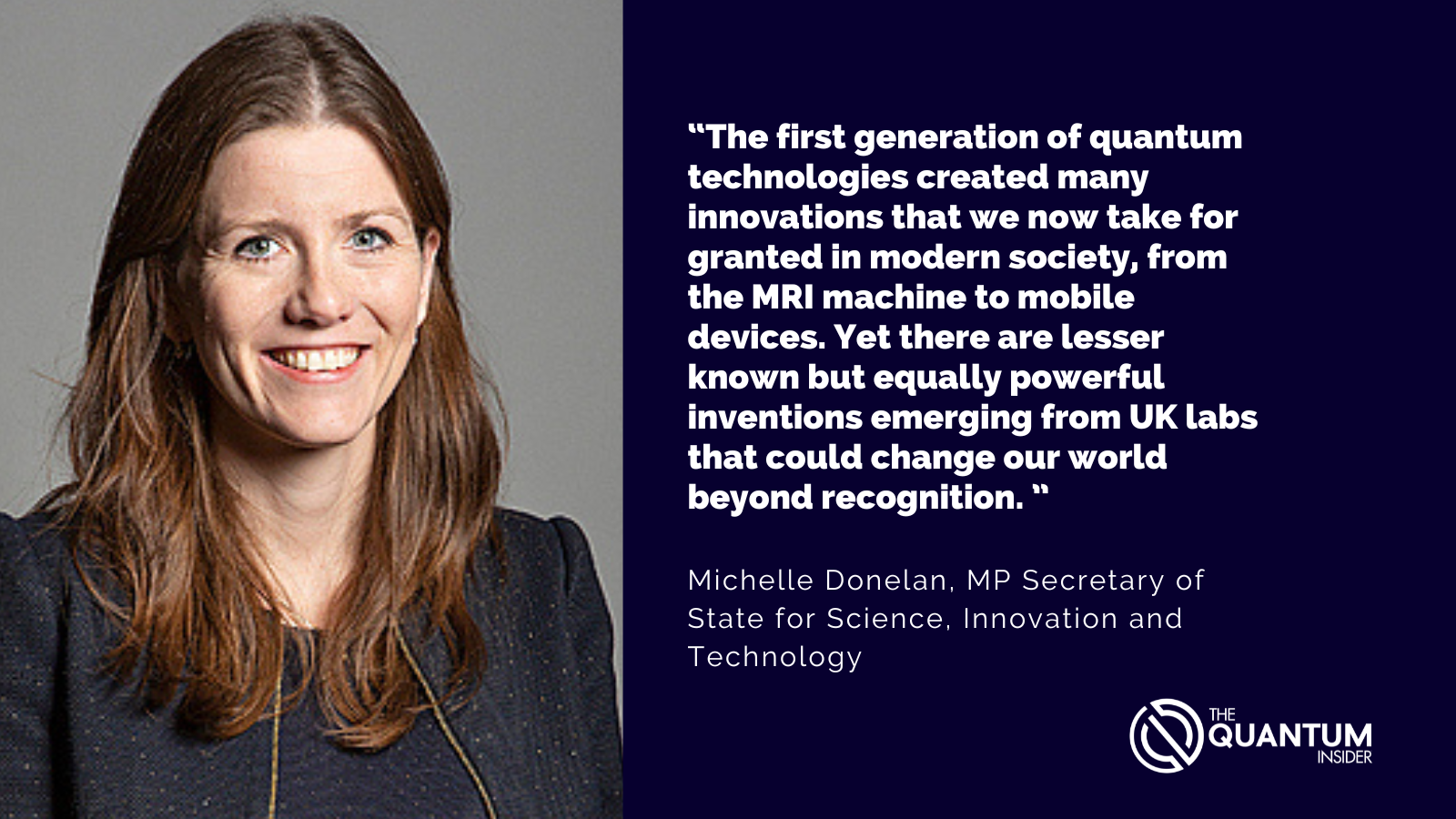The UK government identified quantum technologies as a top priority for the next decade and explained this focus in its National Quantum Strategy released on March 14.
Released by the Department of Science, Technology and Innovation, the strategy calls out the significant potential benefits for the economy, society and the environment.
Quantum technologies leverage atomic-scale phenomena to manipulate information and solve complex problems that currently vex the most powerful classical computers. These technologies offer solutions to some of the greatest societal challenges and have the potential to transform healthcare, energy infrastructure, transportation, environmental monitoring, and national security.
Noting that quantum technologies are at the core of the UK’s Department of Science, Technology, and Innovation mission, Michelle Donelan, MP Secretary of State for Science, Innovation and Technology writes that the technology has already improved the lives of UK citizens and has the potential to bring untold more benefits.

“The first generation of quantum technologies created many innovations that we now take for granted in modern society, from the MRI machine to mobile devices,” Donelan writes. “Yet there are lesser known but equally powerful inventions emerging from UK labs that could change our world beyond recognition. These inventions will improve the lives of everyone in the UK, from improving healthcare and speeding up drug discovery, to boosting economic growth and security and providing jobs. They will also help us tackle climate change, build a sustainable future for our children, and help the UK to respond to growing global volatility, as set out in the government’s Integrated Review Refresh.”
The report estimates that benefits of quantum computing are significant, ranging from $5-10 billion over the next three to five years to $450-$850 billion in the next 15 to 30 years. Quantum sensing and imaging offer unprecedented insights into underground resources and greenhouse gas emissions, providing benefits for environmental monitoring and large-scale construction projects. Quantum clocks and communication could help develop new navigation and timing capabilities, increase resilience for telecommunications and emergency services and secure the global communications network against cybercrime, according to the report.
This strategy calls for a ten-year vision, plan and priority actions. Calling the present moment “the early stage,” the government will strive to support efforts that build the science, grow “the vibrant ecosystem, explore a range of technology platforms and parts of the supply chain where the UK has world leading strengths, in addition to focusing on software and use case exploration.”
Priorities are expected to adapt over time within the wider program based on progress and wider trends, in full consultation with the UK quantum community.
How Will The Money Be Spent?
The UK government plans to invest the £2.5 billion in several areas, including support the establishment of research hubs, accelerator programs, challenge-led innovation funding, training and talent programs, collaborative R&D programs, and infrastructure investments.
The government will also launch new doctoral training centers and fellowships in quantum, develop industry placement and apprenticeship schemes, and proactively seek to attract skilled individuals to the UK.
Additionally, the government plans to showcase UK quantum companies, establish stronger mechanisms and catalyst funding through a quantum catalyst fund, significantly expand partnerships with global allies, undertake a Regulatory Horizons Council Review, and protect key areas of quantum capabilities.
An Office for Quantum will be established in the Department for Science, Innovation, and Technology to ensure focus and implementation of the strategy.
The investments will be delivered in two five-year phases.
Seeking Quantum Advantages — and Quantum Advantage
In the report, the UK government said it recognizes that countries that are among the first to develop quantum tech will have significant advantages, especially in terms of productivity, economic growth, health, sustainability, national security and resilience.
While the UK has a world-leading position in quantum technologies, other countries are accelerating their efforts, making it crucial to maintain and strengthen the UK’s position in this global race. The UK government’s strategy for the next ten years aims to build on the successes to date, realizing the incredible potential of quantum technologies for the UK. Investing in quantum technologies now will improve lives, drive economic growth, create jobs, and make the UK more secure and sustainable.
According to the paper, relationships will be necessary and called out organizations that will be important as the plan is rolled out.
“We will work closely with quantum companies as well as key industry and professional bodies such as UKQuantum, the Institute of Physics, the Royal Academy of Engineering, the Institute of Engineering and Technology and techUK to make sure that industry views are understood and that government actions support growth,” the report states.
Donelan added that it will not just be a nation-wide effort, but a community-inclusive effort.
Donelan said, “We have worked hand in hand with the UK quantum community to bring this national strategy to fruition; I would like to thank everyone who has contributed to this process. The hard work starts now to deliver on its goals together.”
If you found this article to be informative, you can explore more current quantum news here, exclusives, interviews, and podcasts.














